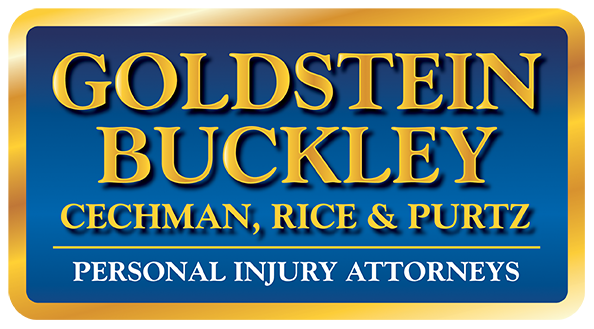Spinal cord injuries (SCIs) are devastating events that can have life-altering consequences for victims and their families. In the state of Florida, hundreds of people suffer from SCIs each year due to various accidents and incidents. Understanding the common types of spinal cord injuries in Florida and their legal requirements is crucial for those affected. Goldstein, Buckley, Cechman, Rice & Purtz, P.A is committed to assisting SCI victims in obtaining the compensation they deserve. In this article, we will explore the most frequent types of spinal cord injuries in Florida, their causes, and the legal avenues available to those seeking justice and fair compensation.
Types of Spinal Cord Injuries in Florida
Complete Spinal Cord Injuries
Complete spinal cord injuries result in the total loss of sensory and motor function below the point of injury. In such cases, victims are left permanently paralyzed below the affected area. Complete SCI may lead to paraplegia (loss of function in the lower extremities) or quadriplegia (loss of function in both arms and legs). Common causes of complete SCI in Florida include car accidents, slip and falls, and sports-related incidents.
Incomplete Spinal Cord Injuries
Incomplete spinal cord injuries are less severe than complete injuries and result in partial loss of sensory and motor function below the injury site. Victims may retain some degree of sensation or movement but often face long and arduous recovery processes. Incomplete SCIs are commonly caused by workplace accidents, motorcycle collisions, and diving accidents.
Spinal Fractures
Spinal fractures are another common type of injury affecting the spinal cord. They can be stable or unstable, and when unstable, they pose a greater risk of damage to the spinal cord. Fractures are often caused by high-impact accidents, such as falls from heights, motor vehicle crashes, and sports-related mishaps.
Causes of Spinal Cord Injuries in Florida
Motor Vehicle Accidents
Motor vehicle accidents, including car, truck, and motorcycle crashes, are among the leading causes of spinal cord injuries in Florida. The impact of these collisions can exert immense force on the spine, resulting in severe damage to the spinal cord.
Slip and Fall Incidents
Slip and fall accidents are particularly common among the elderly population, but they can happen to anyone at any age. When a person slips, trips, or falls, there is a risk of spinal cord injury, especially if the fall involves a significant impact to the back or neck.
Workplace Accidents
Workplace accidents, particularly in industries like construction and manufacturing, can lead to spinal cord injuries. Falls from heights, getting struck by objects, and machinery-related incidents are some of the common causes of SCIs in the workplace.
Sports-Related Injuries
Participating in sports activities carries inherent risks, especially contact sports like football, rugby, and wrestling. These activities can lead to traumatic impacts, resulting in spinal cord injuries.
Legal Requirements for Spinal Cord Injury Claims in Florida
When someone sustains a spinal cord injury due to the negligence or wrongful actions of another party, they may be eligible to file a personal injury claim. To succeed in a spinal cord injury claim in Florida, the following legal requirements should be met:
Duty of Care
The injured party must establish that the defendant owed them a duty of care. For example, drivers have a duty to follow traffic laws and operate their vehicles safely, while property owners have a duty to maintain safe premises for visitors.
Breach of Duty
The plaintiff must prove that the defendant breached their duty of care, meaning they acted negligently or recklessly, leading to the spinal cord injury.
Causation
There must be a direct link between the defendant’s breach of duty and the spinal cord injury suffered by the plaintiff. The injury must be a foreseeable consequence of the defendant’s actions or negligence.
Damages
The plaintiff must demonstrate the extent of the damages they suffered due to the spinal cord injury. These damages can include medical expenses, lost wages, pain and suffering, and re
The Importance of Seeking Legal Representation
When facing the aftermath of a spinal cord injury, victims may be overwhelmed with medical treatments, rehabilitation, and adjusting to their new circumstances. During this challenging time, seeking legal representation becomes vital for several reasons:
- Understanding the Legal Process: Navigating the legal system can be complex and confusing, especially when dealing with a spinal cord injury claim. An experienced personal injury attorney can guide victims through the process, explaining their rights and options clearly.
- Gathering Evidence: Building a strong case requires collecting evidence to establish liability and the extent of damages. Attorneys skilled in handling spinal cord injury cases know how to gather crucial evidence, such as accident reports, medical records, and expert testimonies.
- Calculating Damages: Determining the full extent of damages in a spinal cord injury case can be challenging. An experienced attorney can accurately calculate economic and non-economic damages, ensuring that victims are appropriately compensated for their losses.
- Negotiating with Insurance Companies: Insurance companies may attempt to minimize payouts or deny claims altogether. Having legal representation levels the playing field and helps victims secure a fair settlement that covers their present and future needs.
The Role of Compensation in Recovery
Compensation obtained through a successful spinal cord injury claim plays a crucial role in the victim’s recovery process. It can provide financial stability and help cover various expenses, including:
- Medical Expenses: Spinal cord injuries often require extensive medical treatments, surgeries, rehabilitation, and ongoing care. Compensation can alleviate the burden of these substantial medical bills.
- Lost Wages and Future Earnings: SCIs may result in temporary or permanent disability, affecting the victim’s ability to work. Compensation can account for lost wages and future earning potential, providing financial security for the years ahead.
- Pain and Suffering: Living with a spinal cord injury can be physically and emotionally painful. Compensation for pain and suffering acknowledges the victim’s hardship and provides some measure of justice.
- Home Modifications and Assistive Devices: Spinal cord injury victims often require significant adjustments to their living environments, including home modifications and assistive devices. Compensation can cover these costs to enhance their quality of life.
If you or a loved one has suffered a spinal cord injury in Florida due to someone else’s negligence, it is essential to seek legal representation from experienced personal injury attorneys. At Goldstein, Buckley, Cechman, Rice & Purtz, P.A., our team is dedicated to fighting for the rights of SCI victims and obtaining fair compensation for their injuries. Contact us today for a free consultation and let us help you navigate the complex legal process, while you focus on your recovery and well-being.
Spinal cord injuries can have catastrophic consequences for victims, affecting their physical, emotional, and financial well-being. In Florida, the most common types of spinal cord injuries result from motor vehicle accidents, slip and fall incidents, workplace accidents, and sports-related mishaps. Victims who have suffered such injuries due to the negligence of others have legal options available to pursue compensation for their damages.
The dedicated team at Goldstein, Buckley, Cechman, Rice & Purtz, P.A. is here to support spinal cord injury victims throughout Florida. We understand the challenges you face and are committed to fighting for the justice and compensation you deserve. Do not hesitate to reach out to us for a free consultation and let us be your trusted advocates during this difficult time.
